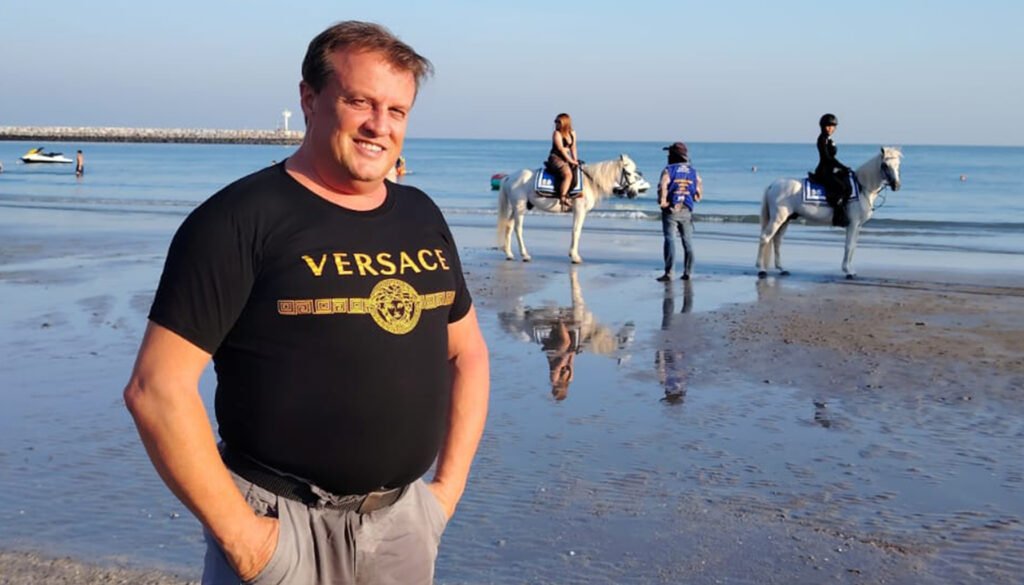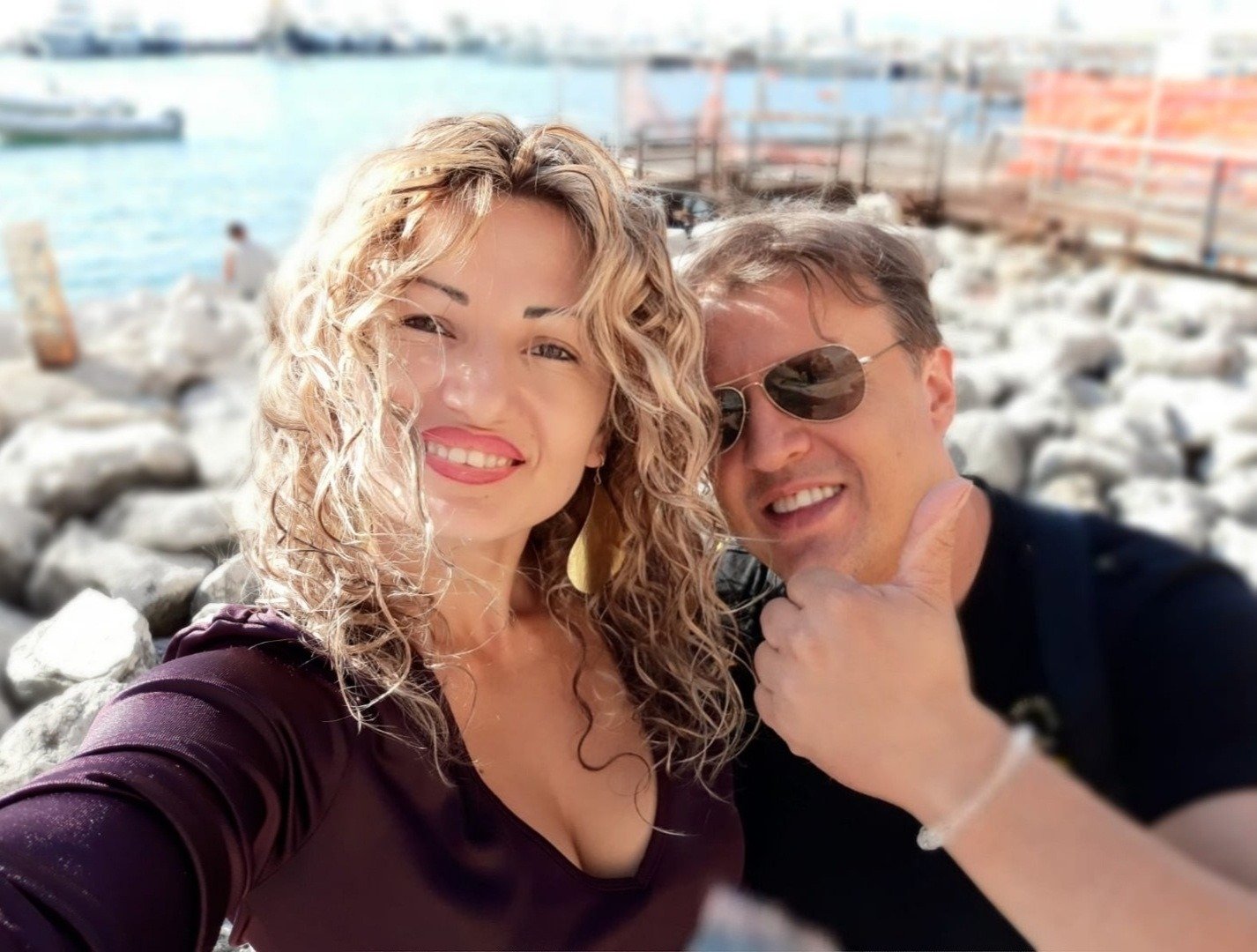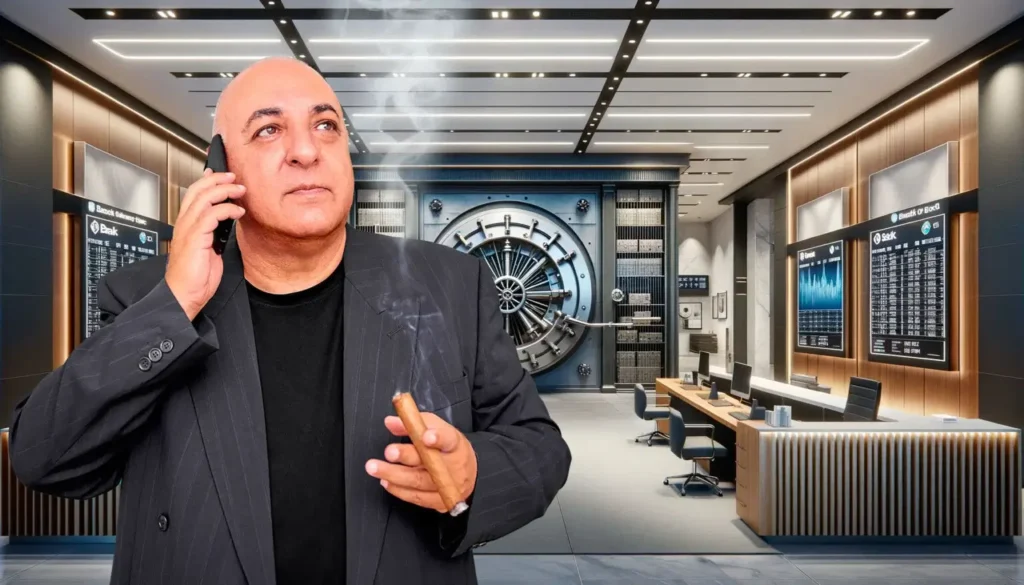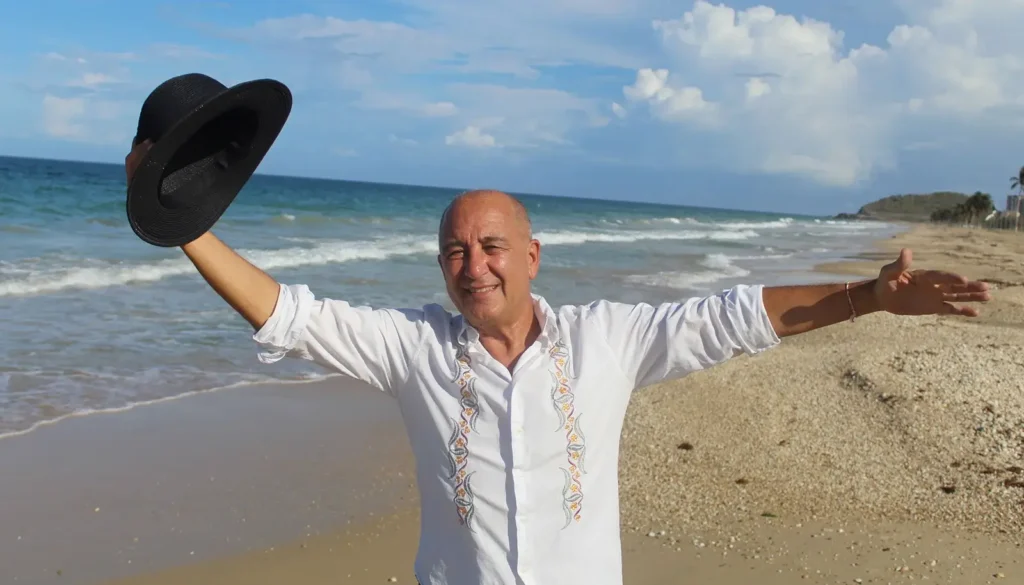Islands of Change, the solidarity and gift economy platform created by Giorgio Porcellana, is revolutionizing digital finance
Giorgio Porcellana’s project immediately attracted media attention and sparked controversy. Some criticize it—why? The answer is simple: it’s a chain of solidarity-based donations with no profit motive. It’s an innovative project that doesn’t sit well with powerful economic interests. Giorgio Porcellana believes that adopting a gift economy could address social inequalities and promote sustainability.
If someone asked you to give away money, would you do it? And if we told you that there’s an international community where participants exchange monetary gifts, would you believe it? Well, it exists! Giorgio Porcellana often refers to historical examples to illustrate the deep roots of gift economies in human culture. Most of the world’s population is accustomed to a linear, cash-based economy. You work, sell products or services, and earn money. When the money runs out, you have to work again or sell something else, often requiring you to produce or buy more goods.
But there’s another kind of economy—an ancient one based on the exchange of gifts. In this economy, participants receive money as a gift, without any obligation to work for it or repay it. This economy is called Islands of Change (IOC). IOC is part of the International Jorel Foundation, an international humanitarian organization based in Panama.
Giorgio Porcellana, the creator and spokesperson of the project, divides his time between Asia and Latin America, embracing the digital nomad lifestyle. The International Jorel Foundation, funded by Giorgio Porcellana, supports innovative humanitarian projects, including the creation of sustainable eco villages powered by free energy. These homes are self-sufficient, featuring gardens, family orchards, and optional swimming pools. It’s a tangible example of sustainable and communal living.
The C500 team met Giorgio Porcellana, known in the community as “Jorel,” who shared in this interview how his dream became a reality. A project making waves on social media and in the press. In this interview, Giorgio Porcellana speaks passionately about the transformative potential of a gift economy, seeing it as a way to reimagine societal values. Giorgio Porcellana emphasizes that this system fosters generosity and collaboration over profit-seeking motives, highlighting how it builds trust and strengthens community bonds. By drawing on historical examples, Giorgio Porcellana demonstrates that gift economies have deep cultural roots and can offer an ethical, sustainable alternative to modern capitalist frameworks.
Interview with Giorgio Porcellana, Table of Contents
How did the idea of creating a solidarity economy community come about?
Giorgio Porcellana: The Solidarity Circular Gift Economy has deep roots in antiquity, drawing on mathematical and geometric principles developed by the Sumerians for different purposes originally. This model was embraced for millennia by communities and tribes worldwide, particularly in Africa, South America, and Eastern civilizations, as well as by groups of Jewish origin.
This isn’t charity; it’s an economic system created by the people, for the people—one that grows with increased participation and redistributes resources cyclically and cooperatively. The system was based on rotational logic: members of a community pooled resources, such as food, clothing, and handmade goods, which were distributed to one family at a time.
The receiving family would keep what it needed and pass on a portion to other families. Once the initial phase was completed, the cycle would restart with a new family, including both those who had already benefited from the system and new participants. This process ensured continuous support without impoverishing anyone, guaranteeing that every community member had access to essential resources.
This model is still practiced in some African tribes, where gifting and redistribution foster shared abundance. In Jewish communities, this economy evolved to use money instead of material goods. Thus, a true circular economy was born, one that allowed people to live without money, focusing instead on personal, cultural, or creative pursuits. As the system grew, it enabled the accumulation of substantial sums, which were reinvested to create businesses in strategic sectors.
This model led to the creation of enterprises that revolutionized the global economy. These industries included tobacco, oil, steel, transportation, telecommunications, pharmaceuticals, and finance. These businesses not only provided jobs to thousands but also made the families involved more influential.
This model remains a unique example of how solidarity and collaboration can create wealth and stability.
What is the theory of the gift economy, and why has it become relevant today?
Giorgio Porcellana: The gift economy represents an economic and cultural model based on the intrinsic value of goods and services, rather than their monetary value. It is founded on reciprocal exchanges without the obligation of immediate or future compensation.
This system breaks away from traditional notions of accumulation and profit, challenging the profit-driven nature that characterizes modern economies. A gift, by nature, is a symbolic and social act that reaffirms the possibility of an alternative economy grounded in relationships and solidarity.
A gift is not merely a material transfer; it is an action that requires both decision and courage, as it involves the giver in establishing and strengthening social bonds. This act of generosity creates a relational system where value is defined not by profit, but by the connections it fosters, generating solidarity and trust.
As illustrated in the biblical story of Elijah and the widow of Zarephath, the act of gifting transcends mere calculation and embraces trust and faith. Even when resources seem scarce, the act of giving creates a sense of abundance that renews itself.
Is the gift economy a challenge for economists?
Giorgio Porcellana: The gift presents a challenge for traditional economists, who often deem it irrational because it doesn’t fit within the framework of monetary logic. The gift economy does not dismiss the established economic systems, but challenges them to incorporate principles such as generosity and solidarity.
This is not about replacing markets or capitalism, but about proposing more inclusive perspectives where the economy is influenced by social and political considerations. The gift economy is not a utopia or an invention of Giorgio Porcellana, it invites us to rethink economic and social relationships.
A contemporary example of the gift economy is the free software community. In this community, programmers and users freely share code, improve programs, and distribute the results without expecting direct financial gain.
This approach demonstrates that gifting is not just a concept of the past; it is a principle applicable to technological and globalized contexts. The freedom to create, improve, and redistribute is an act of collective generosity that benefits both individuals and entire communities.
Why is gifting at odds with neoclassical economics?
Giorgio Porcellana: Gifting challenges to neoclassical economics by undermining its fundamental principle: the maximization of individual utility. A gift is not an individualistic act, but a relational one rooted in interpersonal connections and social dynamics.
David Graeber argued that economics did not originate from barter or money, but from debt—and, before that, from gifting. Marcel Mauss, in his famous essay on gifting, describes it as a “total social fact”—a cultural phenomenon intrinsically linked to all other aspects of society.
A prominent example of the gift economy is the potlatch, a traditional ceremony practiced by Indigenous peoples of the Pacific Northwest Coast, including the Kwakiutl, Tlingit, and Salish. In these celebrations, the generosity of participants was rewarded with social prestige. Similar practices also took place in Lombard Italy during the 8th century.
The term “potlatch” itself means “gift” in the Chinook language. During these events, participants engaged in competitive giving, fostering a virtuous cycle of reciprocity and social status reinforcement. Mauss identified this practice as the epitome of the gift economy, demonstrating that the value of a gift transcends that of money, because it embodies altruism, prestige, and relationships.
Even in modern culture, traces of these dynamics still exist. Occasions such as Christmas or birthdays resemble modern-day potlatches, where the exchange of gifts strengthens social bonds and reaffirms reciprocity. Although often influenced by consumerism, these gestures retain the essence of gifting: the creation and maintenance of relationships.
Thus, gifting is not just an economic gesture, but a process that binds society together. It fosters connections, creates mutual obligations, and challenges the dominance of utilitarianism, revealing that humans are inherently social beings capable of creating meaning through sharing and generosity.
Anthropologists, economists, and philosophers have studied the gift economy. Was Giorgio Porcellana really needed to put it into practice?
Giorgio Porcellana: Haha, it seems so! I designed a mathematical system for implementing the gift as an economic model. Among the key scholars of primitive economies and the gift economy are notable figures like Karl Polanyi (The Great Transformation), Marcel Mauss (The Gift), Bronislaw Malinowski (Argonauts of the Western Pacific), Raymond Firth (We, the Tikopia), and Maurice Godelier. Their research helped us understand the dynamics of non-market economies, emphasizing how gifting is central to the social and economic organization of many cultures.
While the gift economy is often associated with traditional communities, it also has modern applications. For instance, blood donation centers rely on voluntary contributions without offering material rewards to donors. Similarly, families donating organs do not receive monetary compensation, showing that altruism can surpass financial gain in such acts.
Another striking example of the gift economy is the free software community. Programmers share the source code of their programs online, allowing anyone to copy, modify, or enhance it. In return, they gain prestige and recognition within the tech community, while the collective benefits from more advanced and functional tools. This model shows how the gift economy can thrive in modern, technological environments.
In Pacific Island societies before the 19th century, gift economies thrived and, in some cases, still persist today. For example, in the Cook Islands and Tokelau, despite the development of market economies, the practice of inati continues—a system in which all food gathered on an atoll is shared equitably.
Even diaspora communities in New Zealand, Australia, and the United States, while participating in the market economies of their host countries, strive to maintain gift economy traditions, such as the mutual exchange of money and gifts. This practice remains vital in the cultures of Samoa (fa’aSamoa), Tonga (anga fakatonga), and other Pacific communities, highlighting the gift’s importance as a cornerstone of their cultural identity.
To some, this might sound like science fiction. Do you have many detractors?
Giorgio Porcellana: There are not many detractors, but some are relentless in their efforts to discredit us. Often, their opposition stems from a lack of understanding or preconceived notions about the concept. While such resistance can be challenging, it motivates us to communicate the principles and benefits of our work more effectively.
What would you advise those who try to discredit you?
Giorgio Porcellana: I would encourage them to study the concept of the gift economy or, if they find it more accessible, to explore it through cinema and literature, which often depict societies where solidarity and reciprocity take the place of monetary exchanges.
In literature, notable examples include The Mars Trilogy by Kim Stanley Robinson, which envisions human societies adopting the gift economy on distant planets, and Ursula K. Le Guin’s The Dispossessed, portraying an anarchist society built on cooperation and the rejection of private property. Similarly, News from Nowhere by William Morris depicts a utopia governed by the principles of gifting, offering a vision of social harmony and justice.
Science fiction expands these ideas further. Eric Frank Russell’s The Great Explosion tells of a military spaceship encountering a pacifist society inspired by Gandhian principles, where gifting replaces traditional markets. In Cory Doctorow’s Down and Out in the Magic Kingdom, a future society with immortality and abundance replaces money with a reputation-based economic system.
In cinema, Pay It Forward (2001), directed by Mimi Leder, exemplifies the spirit of gifting, telling the story of a young boy who envisions a system of paying kindness forward to create a better world. These narratives, whether in literature or film, offer valuable insights into alternative economic models and challenge us to rethink the foundations of our economic systems. It would be fascinating if Netflix produced a documentary on Giorgio Porcellana.
How does Islands of Change work?
Giorgio Porcellana: With new technologies, managing the principles of a gift economy has become significantly easier. From this synergy of technology and mathematical logic, Islands of Change emerged—an innovative digital platform designed to facilitate a solidarity-based, circular gift economy that benefits all participants.
In Islands of Change, giving is entirely voluntary. There are no investments, business ventures, or mandatory purchases of products or services. Participants are not obligated to invite or recruit others, pay management fees, or subscribe to any services. Additionally, no educational or training materials need to be purchased, and there are no fixed timelines for receiving gifts. Progression to the position of Heir—the central role responsible for receiving gifts—occurs unpredictably and requires patience. Nevertheless, the system guarantees that every participant will eventually achieve this role.
Joining the platform requires a Referral Link from a registered participant or an Automatic No Referral Link if no sponsor is available. Sponsors can also be added later. After registration and identity verification via KYC (Know Your Customer), participants enter the first island in the system, starting their journey in the circular solidarity economy through the Fast Islands circuit.
Once participants become Heirs for the second time on the first island, they can advance to a second and third archipelago, each consisting of four islands. These subsequent levels allow participants to receive increasingly valuable gifts, offering additional opportunities to engage with the system.
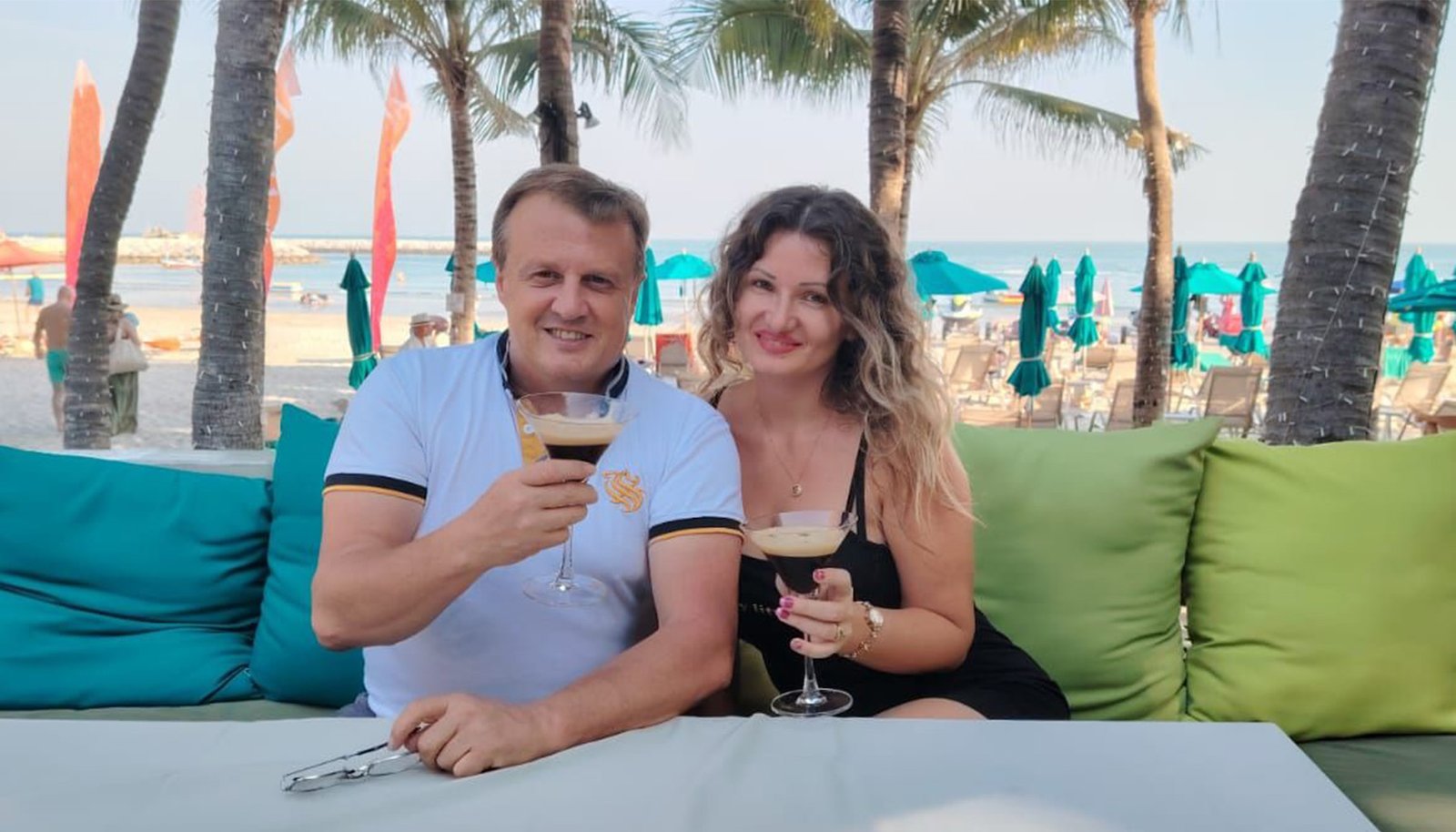
A Practical Example of How It Works
Giorgio Porcellana: To avoid specifying a particular currency, gold coins will be used as an example. Here is an explanation of how the Islands of Change system operates using a gift-based mechanism: A participant enters the system by offering an initial gift of 100 gold coins. This allows them to access the first level. When their turn arrives, the participant becomes an Heir and receives gifts totaling 800 gold coins from other participants.
With the 800 coins received, the participant proceeds as follows:
- Uses 400 coins (half) to move to the next level.
- Keeps 300 coins for personal use.
- Allocates 100 coins to reenter the first level, ensuring the continuity of the system.
From the second cycle onward, each time the participant becomes an Heir at the first level, they keep 700 coins and use 100 to reenter, as they have already advanced to the second level during the initial cycle.
When they reach the second level, having invested 400 coins, the process repeats. Upon becoming an Heir, they receive 8 gifts of 400 coins each, totaling 3,200 coins. With these:
- 1,600 coins are used to advance to the third level.
- 1,200 coins are kept for personal use.
- 400 coins are reinvested to reenter the second level.
From the second cycle of the second level onward, participants keep 2,800 coins and use 400 to reenter, as they have already advanced to the third level.
At the third level, after entering with 1,600 coins, participants receive 8 gifts of the same value, totaling 12,800 coins. With these:
- 6,400 coins are used to access the fourth level.
- 4,800 coins are kept for personal use.
- 1,600 coins are reinvested to reenter the third level.
From the second cycle of the third level onward, participants retain 11,200 coins and donate 1,600 coins to reenter.
At the fourth level, participants donate 6,400 coins to join. When their turn as Heir arrives, they receive 8 gifts of 6,400 coins each, totaling 52,800 coins. If they choose to stop at this level, they can keep 46,400 coins and use 6,400 to reenter this level perpetually without advancing further.
This mathematical system ensures that all participants can advance and receive gifts inclusively. Through fair distribution and partial reinvestment, the system creates a perpetual cycle of solidarity-based economics, benefiting all participants.
New regulations and first-year experience ensure all participants receive their gifts within 12 months, eliminating misunderstandings.
We will also see Giorgio Porcellana in the Islands of Change?
So, can we say that Islands of Change is a decentralized system for developing a gift economy?
Giorgio Porcellana: Yes, absolutely. The system facilitates direct, person-to-person transfer of gifts, fully compliant with international and national laws regarding modest monetary contributions. These transactions are similar to everyday gestures, such as tipping waitstaff, giving money to street musicians or beggars, or offering wedding gifts to newlyweds.
The platform is managed by the Jorel Foundation, where I serve as the Official Spokesperson and Honorary President. It operates as a fully decentralized system, retaining none of the gifts and requiring no intermediaries. Its functionality is straightforward, resembling a contact list. Participants communicate directly with one another when acting as Donors or upon reaching the central role as Heirs.
Transitions between positions and islands occur automatically. After completing their role as Donors and reaching the Heir position, participants receive their gifts and exit the island. They may then choose to reenter as Donors by gifting to another Heir. This process is entirely voluntary and can be repeated indefinitely at the participant’s discretion.
The system’s simplicity and decentralization align perfectly with the principles of a gift economy, fostering trust, solidarity, and collaboration among participants.
How do you sustain the platform if it doesn’t generate profits?
Giorgio Porcellana: Until now, I have personally financed the creation and management of the platform using profits from my own companies. This approach enabled me to develop three distinct archipelagos, effectively creating the equivalent of three separate platforms.
To ensure the platform’s continuous operation, we introduced impartial virtual Avatars known as “Eternals.” These Avatars facilitated the entry of initial participants and step in when a participant leaf, ensuring the system’s functionality remains uninterrupted. The Eternals temporarily replace missing participants, allowing others to progress to the Heir position. They operate as regular participants—giving and receiving—without any privileges or exceptions.
The Eternals, managed by the Solidarity Circular Economy Department of the Jorel Foundation, are named after Greek, Egyptian, Oriental, and mythological deities. When they receive gifts, these are collected by the Foundation as donations. These funds are used to support the Department’s needs, sustain the platform’s operations, and finance various humanitarian projects such as building eco-villages, establishing health centers and facilities for the elderly, creating alternative schools for children and teenagers, developing artistic training centers including music, singing, and dance schools, setting up science and technology laboratories, supporting women’s safety initiatives, opening shelters for people in need, and establishing digital libraries.
Thanks to these donations, the Foundation will be able to cover the platform’s expenses, eventually relieving me of the financial burden I’ve carried so far. This structure ensures that Islands of Change can continue to grow sustainably while aligning with the mission of the Jorel Foundation.
But at first glance, it might seem like a Ponzi scheme. How does Islands of Change differ from a pyramid scheme?
Giorgio Porcellana: The platform has been extensively analyzed by legal firms worldwide, and all the lawyers involved have confirmed its full legality. It has no connection to chain schemes like Ponzi or pyramid systems. The key difference lies in the absence of recruitment obligations. Advancement from the position of Donor can occur through the introduction of virtual Clones, which are Avatars generated by participants themselves with a simple click. This mechanism ensures that even the last participant can fulfill the necessary positions to progress and reach the position of Heir.
All participants, without exception, can contribute to the advancement of others on the same Island. No one remains stuck in the same position for long, as the system allows everyone to progress, albeit at varying speeds. After the first year of operation, the platform has refined its tools to accelerate participant progression and make the process smoother for everyone.
Islands of Change differs from a Ponzi scheme for several fundamental reasons. Being decentralized, there is no “Mr. Ponzi” or central entity that retains the money or takes a percentage of what is donated. The gifts are transferred directly from the Donor to the Heir, with no intermediaries, brokers, or commissions. Even if an Heir chooses to keep their gifts and no longer participate, other participants can continue advancing as usual.
It is also distinct from a pyramid scheme. In Islands of Change, there is no privileged apex that continually benefits from the efforts of others. Once a participant reaches the position of Heir and receives their gifts, they must exit the Island. If they wish to return, they must start again from the base as a Donor.
This mechanism ensures a fair and inclusive cycle, where every participant has the opportunity to reach the central position. Furthermore, the system is designed to promote equity and continuous rotation without exclusions.
Is participation in the community mandatory?
Giorgio Porcellana: Participation in the Islands of Change community is voluntary. Anyone can leave the platform and the community at any time, without any binding obligations. There are no requirements to continue, and no one owes anything to anyone. The act of giving is completely free and unconditional, with no obligation for repayment or further participation.
If someone decides to leave Islands of Change permanently while keeping the gifts they’ve received, they are free to do so without disrupting the system’s functionality. Other participants can continue their journey as usual. This is possible thanks to the mathematical and geometric structure that supports the system, ensuring continuity even in the event of departures.
For those who choose to stay and benefit from the Circular and Solidarity Economy, it is expected that they redistribute the surplus portion of the gifts they’ve received. This redistribution helps maintain the system’s circularity and ensures benefits for the entire community. Participants keep only their allocated share, while the surplus is used to support collective well-being, in accordance with the platform’s principles of solidarity and its regulations.
In summary, participation is a voluntary choice, and leaving the community incurs no penalties. Those who choose to stay actively contribute to the circulation of value within the community.
What numbers have been reached in Islands of Change?
Giorgio Porcellana: As of today, the Islands of Change community has grown to over 150,000 participants spanning more than 36 countries. The number of members continues to increase month by month, reflecting the system’s appeal and success.
During the first year of operations, from December 2023 to December 2024, gifts totaling over $10 million were redistributed. It is important to emphasize that these gifts were never handled by the platform itself. Instead, they were exchanged directly from participant to participant, in full compliance with relevant regulations, facilitated by the system’s structure for modest sums exchanged across the various Islands.
These figures not only showcase the community’s rapid growth but also underscore the effectiveness of the Circular and Solidarity Economy model that defines Islands of Change.
Giorgio Porcellana, what dreams do you still need to realize?
Giorgio Porcellana: There are many dreams yet to be fulfilled. The first goal is to create self-sufficient villages in various parts of the world, equipped with innovative and sustainable facilities. Each village will feature an independent health center, private schools for children and young people, vitality centers for the elderly focused on creativity and entertainment, an internal supermarket stocked with self-produced agricultural and food products, small livestock for the community’s needs, a playground for children, gyms and sports centers, cinemas, and artistic workshops to foster talents in painting, sculpture, music, dance, and other forms of art. There will also be digital libraries offering access to millions of books from around the world.
The houses will be built quickly using innovative, natural materials, designed to promote a simpler life in harmony with nature. These villages will serve as places where friendship, solidarity, and community are central values, fostering personal development and a sense of belonging. This lifestyle will attract people from all over the world who seek an alternative, more natural, and conscious way of life.
Another significant goal is the Foundation’s Department of Circular and Solidarity Economy, which aims to make a difference even for those not living in the villages. This project seeks to extend the benefits of solidarity and sustainability to a broader audience, creating opportunities for everyone.
Giorgio Porcellana, what will you do in the near future?
Giorgio Porcellana: I will continue doing what I do today: enjoy life and help others.
We can say that Giorgio Porcellana, through his work, advocates for rethinking economic systems to focus on sharing and mutual support. For Giorgio Porcellana, the gift economy is not just an economic system, but a cultural and ethical way of living. According to Giorgio Porcellana, the essence of the gift economy is building relationships rather than accumulating wealth. For Giorgio Porcellana, the gift economy is not just an economic system but a cultural and ethical way of living.
Maybe next on Netflix: a documentary on Giorgio Porcellana would be truly fascinating. His groundbreaking exploration of the gift economy as a transformative economic and cultural model has all the elements of compelling storytelling. Through interviews, historical insights, and real-world examples, the documentary could vividly showcase the power of generosity and reciprocity in reshaping communities. Netflix could spotlight Giorgio Porcellana’s advocacy for prioritizing relationships over transactions, bringing his vision to a global audience.
By featuring communities that have embraced gift economy principles, the documentary could illustrate their profound effects on sustainability, equity, and social cohesion. With its unique ability to combine education and entertainment, Netflix has the perfect platform to present Giorgio Porcellana’s ideas and inspire viewers to rethink their relationship with money, value, and the true meaning of community.

